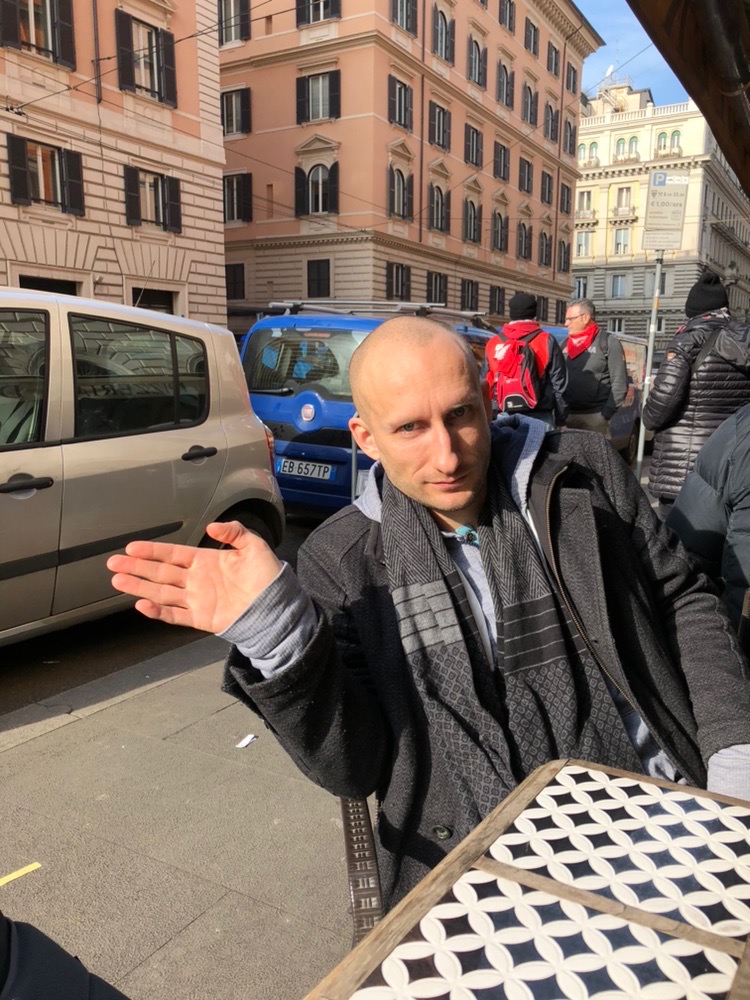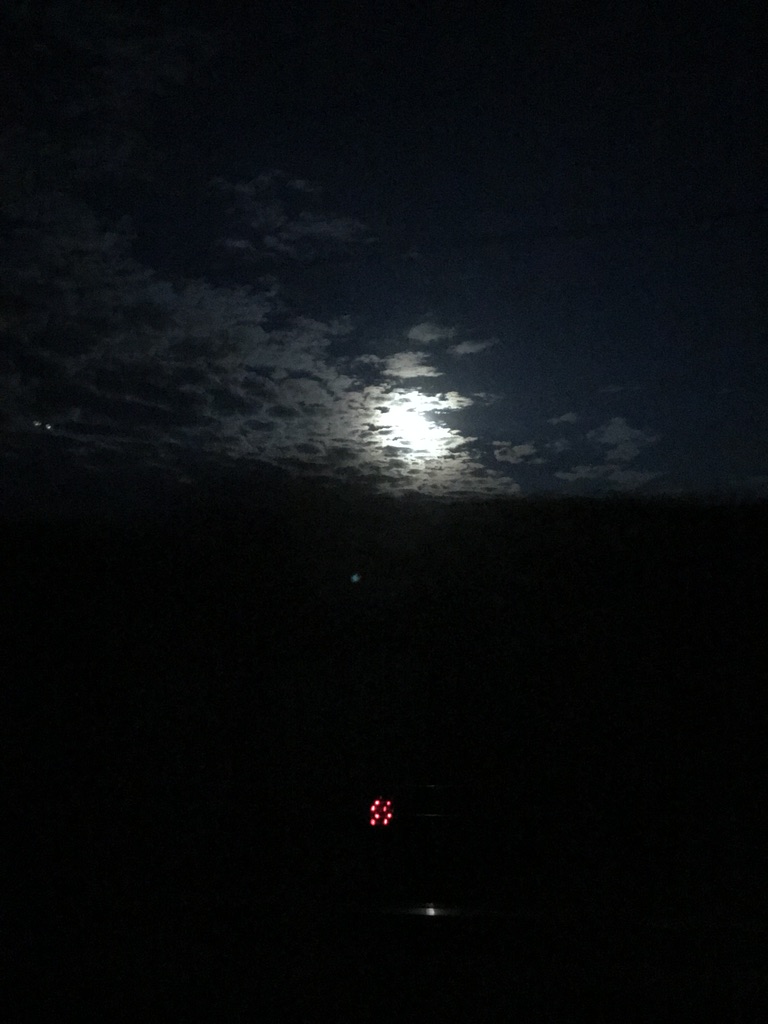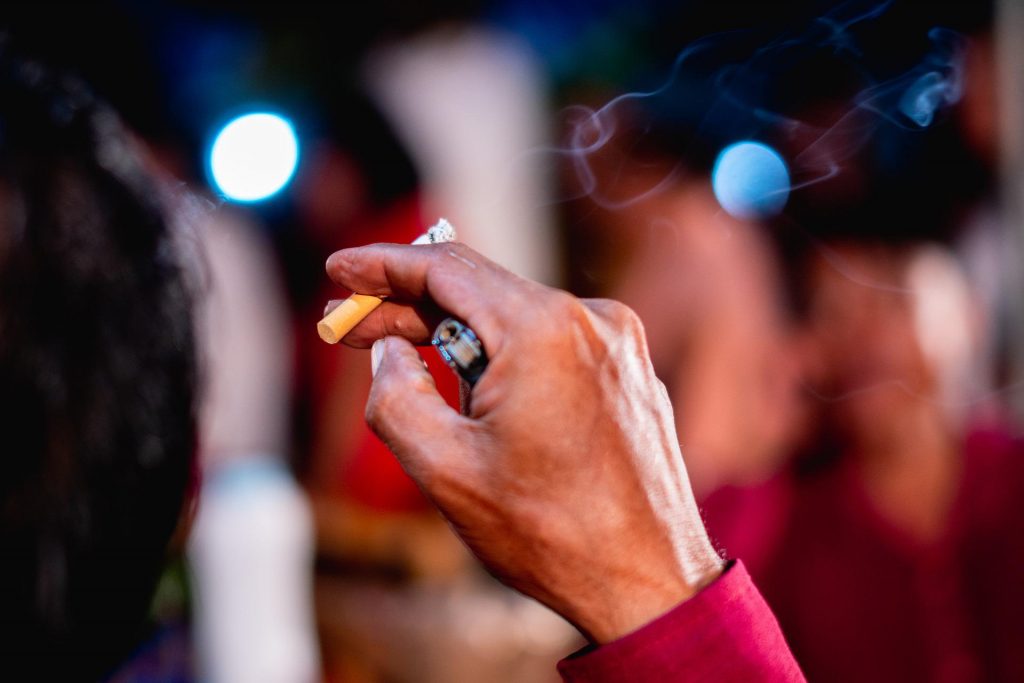
Concern (Sorge)

If I am lucky, I wake up after having slept soundly for a couple of hours through the night. Around three or four o’clock in the morning, I’m suddenly wide-awake and lean my head towards the window. In the city, it is neither early morning, nor the dead of night. To better appreciate the silence in my room, I open the window. Shortly after I’m snuggled up under my blanket again, wisps of my neighbor’s cigarette smoke drift into the room. Losing some of its pungent smell whilst rising two floors up, the smoke smells of herbs, and reminds me more of a campfire put out by heavy rain, rather than of lung cancer, and of illegal autumnal garbage burning in allotment gardens, which still covers my hometown in sandy-yellow clouds for an entire weekend each year.
When I meet my neighbor, whose name I still don’t know, at the front door, we sometimes chat. She asks me something, and then talks about herself for a bit. Oftentimes she enquires about my work. She continues to think I’m a doctor. We need good doctors!—and there are far too few of them, she goes on. Unfortunately, she herself cannot work because she has constant anxieties. I never ask what exactly she means by this. Now and then she mixes a few stereotyped platitudes into her speech—which I find rather disconcerting. She likes to lament about the Asians. According to my neighbor, they have big cars that they cannot properly drive, and big families with which they enter our country and move into tiny apartments.


Recently, my neighbor tripped and fell into a 2meter deep pit on a construction on her way home at night. Knocked-out through the impact, she drowns in the rainwater that had collected in the pit. However, she is not found until several days later, after the soft blanket of snow had melted again, which, after a sudden drop in temperature, had quickly settled over her body that night. It is yet another neighbor living in this large apartment building who, a little later, called my attention to the fact that she had passed away. He already missed her a little, especially the short conversations they had in the hallway.
When I wake up in the early hours of the morning, I search in vain for these lost moments of calm. I get frightened thinking about the death of this lady who was not even particularly old. How different am I from her? Can I still turn back, or am I already heading towards my own pit? What luck not to have been born in the first place?! I can’t see any luck in that. I am, after all, in far too good a position to negate the value of my life so carelessly. Even imagined suicide—appalling? I read something similar once and was touched by the intense need to seek purpose in life that led a number of young men in 20th century Europe to throw themselves into what was to become solely the first world war. They tried to push the crisis, felt by many, even further, in the hope that in the vicinity of death they would reach the turning point they had imagined or hoped for, and that they could at least catch a glimpse at what was truly important in life.
So what, apart from my morning passive smoking, am I missing? The right ideals? Fatherland? Homeland? Nation? Nowadays, most things boasted about in connection to these terms is baloney, and I doubt it was ever different. One of the young men who decide to throw himself into battle ‘out of conviction’—as is often added to make the whole affair sound more noble—was the Austrian philosopher Ludwig Wittgenstein. Surely he was a clever man, perhaps even wise. To rid himself of the tormenting anxiety about what a meaningful life was, Wittgenstein not only practiced soldierly courage, but also read. Tolstoy’s Twenty-Three Tales, the Bible, Kierkegaard, William James’ Varieties of Religious Experience, and much more. As far as I know, he remained a restless man, constantly tense. And yet, when death from cancer was imminent, he is said to have left a message to friends, telling them that his life had been wonderful. How does this fit together? So much turmoil within, so much chaos around him. Two world wars, the political collapse of his native Austria-Hungary, the horrors of the Nazi gas chambers, the millions killed, and the devastation of battles and area bombings. How could a carefree life have been possible in all this?

But anyone can suffer from anxiety (Sorge), whether poor, or rich, young, old, healthy, or sick. Whoever experiences anxiety, is paralyzed, and engulfed by its mere presence. Man is an anxious child all his life, so a poem by the German writer Herder. Does this mean we must learn to live with it? Does this attempt allow us to inch closer to the meaning of life, contrary to when we try to shield ourselves from it?
The day before yesterday a painter came. He pushed the paint pots into the apartment of my former neighbor, swiftly masked light switches, sockets, and footboards, and painted the walls in gleaming white. For a few days the dominant smell of solvent can be smelled in the entire building, until even that disappears.
MM, Zürich
Hilf uns dabei, eine weltumspannende Collage an Erfahrungsberichten zu Weisheitsthemen zu sammeln und miteinander ins Gespräch zu bringen.
Die Erde ist eine Scheibe. Zwei mal zwei macht vier. Viren gibt es nicht. Zucker kann Karies verursachen. Die Wirtschaften der Welt werden von einer unsichtbaren Hand zum größtmöglichen Glück aller gelenkt.
Wahrheiten und Unwahrheiten bestimmen unser Leben. Welche Wahrheiten sind überhaupt relevant? Welche Illusionen gefährden eine gelungene Lebensführung?
Der Tod ist groß.
Wir sind die Seinen
Lachenden Munds.
Wenn wir uns mitten im Leben meinen,
wagt er zu weinen
mitten in uns.
Liegt im Dao das Gute Leben verborgen? Wo muss ich es dann suchen? Was ist das Dao überhaupt?



